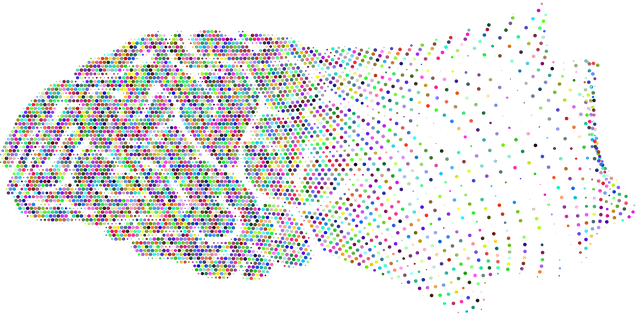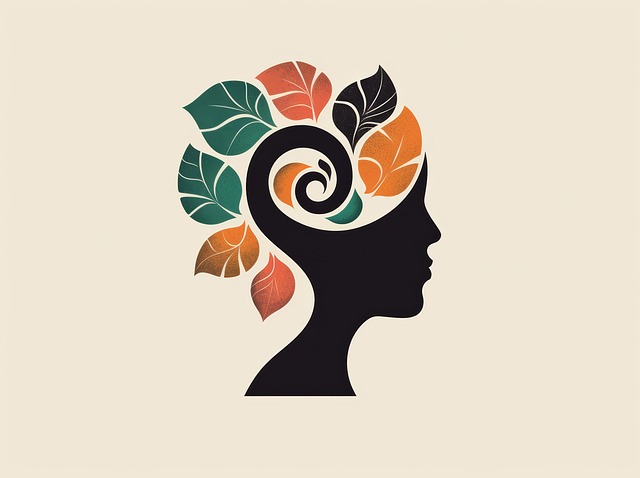In diverse cities like Louisville, Kentucky, cultural competency is vital for healthcare providers to offer personalized, inclusive care. Louisville Somatic Experiencing Therapy (LSET) provides groundbreaking training that focuses on emotional resilience and cultural sensitivity, reducing stigma and burnout among healthcare professionals. Through comprehensive curriculum exploration of various cultural backgrounds, LSET equips caregivers to navigate barriers and enhance patient satisfaction, ultimately transforming traditional mental health training and improving overall well-being in diverse communities.
Cultural competency training is an essential aspect of modern healthcare, aiming to bridge the gap between diverse patient populations and their providers. This article explores the critical need for such education in a dynamic healthcare landscape. We delve into the unique approach of Louisville Somatic Experiencing Therapy (LSET), showcasing its impact on cultural sensitivity training. Additionally, we outline key components, real-world applications, and measurement strategies to ensure effective cultural competency programs, ultimately enhancing patient care through awareness and understanding.
- Understanding Cultural Competency in Healthcare: A Necessity in Modern Practice
- The Impact of Louisville Somatic Experiencing Therapy on Cultural Sensitivity Training
- Key Components of Effective Cultural Competency Programs for Healthcare Providers
- Real-World Applications: Enhancing Patient Care Through Cultural Awareness
- Measuring Success and Continuous Improvement in Healthcare Cultural Competency Training
Understanding Cultural Competency in Healthcare: A Necessity in Modern Practice

In today’s diverse healthcare landscape, cultural competency is no longer a nice-to-have but an absolute necessity. It involves understanding and appreciating the cultural differences and unique needs of patients from various backgrounds, including those in Louisville Somatic Experiencing Therapy communities. This approach ensures that healthcare providers can deliver personalized care that respects and values individual cultural identities. By incorporating cultural competency training, healthcare professionals can improve patient satisfaction, build stronger relationships, and enhance overall health outcomes.
The benefits extend beyond the individual patient-provider interaction. In light of this, effective cultural competency training programs, such as those focusing on resilience building and emotional regulation through community outreach program implementations, play a pivotal role in fostering inclusive healthcare environments. This is particularly important in diverse cities like Louisville, where cultural diversity is a rich tapestry that requires nuanced understanding and sensitivity to navigate effectively.
The Impact of Louisville Somatic Experiencing Therapy on Cultural Sensitivity Training

Louisville Somatic Experiencing Therapy (LSET) has emerged as a pioneering approach in cultural sensitivity training for healthcare providers. This innovative therapy focuses on addressing the profound impact of trauma, often stemming from systemic issues and cultural biases, on an individual’s mental health. By delving into the intricate connection between the body and mind, LSET helps professionals understand the unspoken cultural nuances that can significantly influence patient experiences and outcomes.
Through its comprehensive curriculum, LSET facilitates Mental Illness Stigma Reduction Efforts by encouraging self-care routine development for better mental health. It equips healthcare workers with the skills to recognize and navigate cultural barriers, fostering an inclusive environment. By preventing burnout among caregivers, this therapy promotes sustainable practice and enhances patient satisfaction. The holistic approach of LSET is transforming traditional training methods, ensuring healthcare providers are equipped to offer empathetic, culturally competent care in diverse settings.
Key Components of Effective Cultural Competency Programs for Healthcare Providers

Effective cultural competency programs for healthcare providers should encompass several key components to ensure comprehensive and impactful learning. Firstly, these programs must delve into the nuances of different cultural backgrounds, beliefs, and values, fostering an environment where all patients feel seen and heard. This involves training providers in active listening, non-verbal communication, and empathy, enabling them to navigate complex conversations with sensitivity and respect.
Secondly, integrating self-care routine development for better mental health is vital. Louisville Somatic Experiencing Therapy, for instance, offers techniques that help healthcare workers manage stress and prevent burnout, which are significant challenges in this field. By promoting self-awareness and emotional resilience, these programs ensure that providers can maintain their own well-being while delivering exceptional care to diverse patient populations.
Real-World Applications: Enhancing Patient Care Through Cultural Awareness

Cultural competency training equips healthcare providers with the skills to navigate complex patient interactions, ensuring every individual receives care that respects and understands their unique cultural background. This is particularly crucial in diverse communities like Louisville, Kentucky, where the somatic experiencing therapy (LET) approach has gained traction as a holistic method for addressing trauma. By integrating mindfulness meditation and emotional intelligence into treatment plans, mental healthcare professionals can foster a deeper connection with patients from various ethnic, racial, and cultural groups.
For instance, a culturally sensitive therapist might adapt their communication style to accommodate a patient’s language preferences or incorporate specific cultural practices into therapy sessions. This personalized approach enhances patient trust, encourages open dialogue, and ultimately leads to improved treatment outcomes. The Louisville Somatic Experiencing Therapy community emphasizes these principles, recognizing that addressing emotional trauma requires an understanding of the intricate interplay between culture, mind, and body.
Measuring Success and Continuous Improvement in Healthcare Cultural Competency Training

Measuring success and fostering continuous improvement are vital components of healthcare provider cultural competency training. Institutions like Louisville Somatic Experiencing Therapy utilize a multi-faceted approach to evaluate the effectiveness of their programs. This involves pre and post-training assessments, where participants’ knowledge, attitudes, and skills are gauged using validated tools. The data collected provides insights into areas of strength and weakness, allowing for tailored enhancements in curriculum design.
Additionally, feedback mechanisms such as participant surveys and focus groups offer valuable qualitative input. These methods capture nuanced perspectives on the training’s impact, including improvements in self-awareness exercises and crisis intervention guidance. By integrating Mental Health Awareness into the training framework, institutions can ensure that providers are equipped to address cultural biases and deliver empathetic care in diverse settings.
Cultural competency training for healthcare providers is no longer a choice, but an imperative in modern medical practice. As diverse patient populations become the norm, Louisville Somatic Experiencing Therapy and similar programs highlight the profound impact of cultural sensitivity on care quality. By integrating key components such as awareness, knowledge, skill-building, and reflection, healthcare organizations can create meaningful improvements. Real-world applications demonstrate enhanced patient satisfaction and outcomes, emphasizing the value of continuous improvement in cultural competency training. This evolving landscape demands proactive engagement to ensure equitable and compassionate healthcare for all.














